Politician Walter Franklin George was born on January 29, 1878, in Preston, Georgia. Representing Georgia in the US Senate for 35 years, he became one of the most powerful and respected men in Congress during his lifetime.
Born to sharecroppers, George attended Mercer University before earning his law degree in 1901. After working as a lawyer for several years, he served as a judge in the Georgia Court of Appeals and as an associate justice of the Supreme Court of Georgia from 1917 to 1922.
George resigned from the court in 1922 to run in a special election for the US Senate seat of the late Thomas E. Watson. He easily won the race, but allowed Rebecca Latimer Felton, who had been previously appointed by the governor, to be sworn in on November 21, 1922, making her the first woman seated in the Senate. George took office the following day, and would remain in the Senate for 35 years.
George was a conservative democrat – he supported prohibition and segregation, and opposed civil rights bills and anti-lynching bills because he believed they should have been state matters. He supported business, especially those with large plants in Georgia, and free enterprise. And George believed that capitalism would help create jobs and improve living standards.
Though George was a Democrat, he did not support Franklin Roosevelt’s nomination for president. He also didn’t like some of Roosevelt’s New Deal Programs, but there were many he endorsed. George largely supported those programs that would benefit Georgia, including the Tennessee Valley Authority, Social Security, Rural Electrification Administration, and the Agricultural Adjustment Act. In all, George supported 34 New Deal bills and opposed 10.
George rose through the ranks to become chairman of influential committees. He was chairman of the Senate Foreign Relations Committee from 1940 to 1941 and 1955 to 1957. And he was chairman of the Senate Finance Committee from 1941 to 1946. Though he opposed many of Roosevelt’s domestic policies, George agreed with his foreign policies, including the lend-lease aid to our Allies and the buildup in American defense. And while he initially opposed the idea of an international peace keeping organization, George eventually supported the creation of the United Nations.
By the start of the 1950s, George was one of America’s most powerful politicians, with Life magazine calling him, “one of the most distinguished legislators of his time and the most revered man in the Senate.” From 1955 to 1957, he was president pro tempore, a position that presides over the Senate when the vice president is absent. Throughout his years of service, the senator was known as one of the top public speakers in the chamber.
After more than three decades in the Senate, George chose not to run for re-election in 1956. The following year, President Dwight Eisenhower made him special ambassador to the North Atlantic Treaty Organization (NATO). George’s health rapidly declined a few months into his service, and he died on August 4, 1957. Several places in Georgia have been named in his honor including a law school, high school, lake, and foundation.
| FREE printable This Day in History album pages Download a PDF of today’s article. Get a binder or other supplies to create your This Day in History album. |
Discover what else happened on This Day in History.

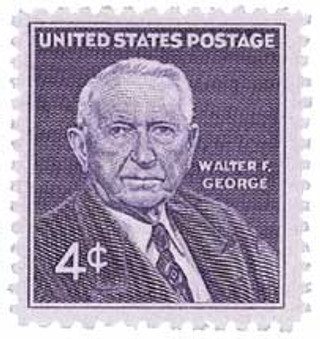
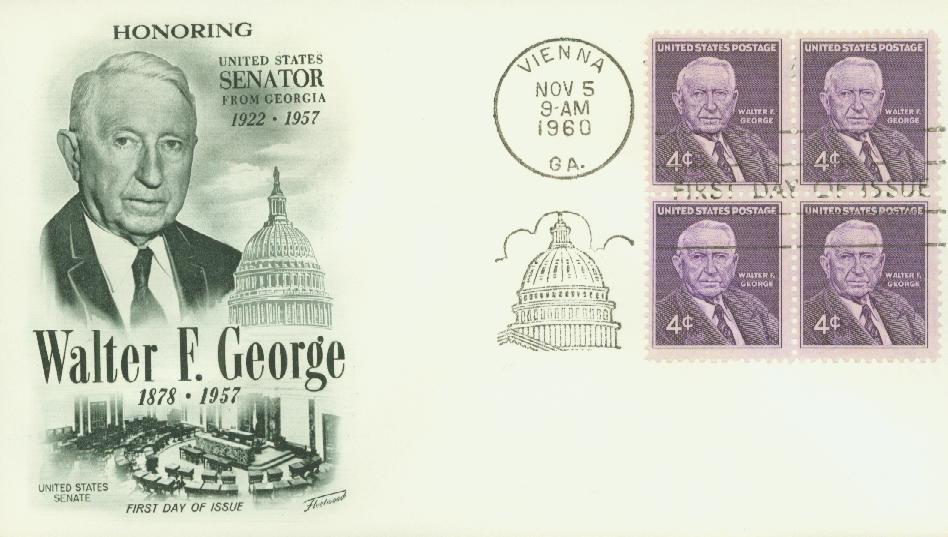
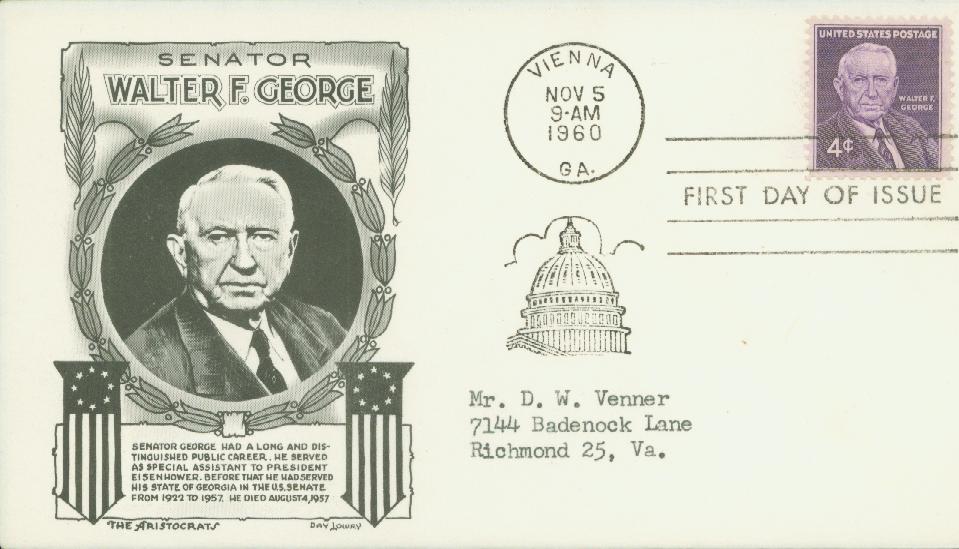
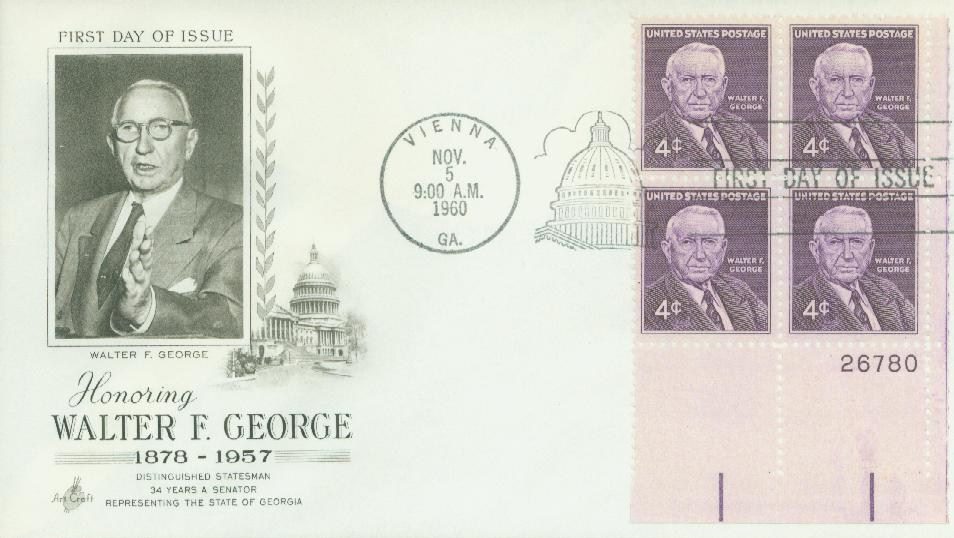
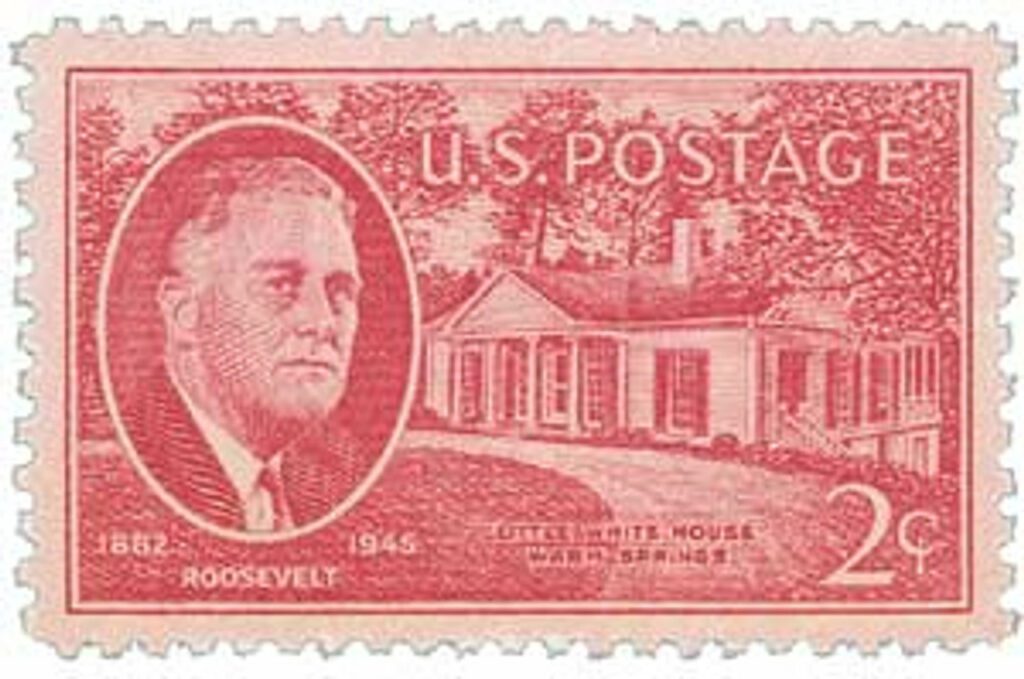

It’s remarkable how many racists like Senator George have been honored on US stamps. D.W. Griffith is another egregious example. Your write-up about George here was too neutral for a contemporary piece.
According to this article, Senator George consistently represented the interests of Georgia. Did he represent the interests black people of Georgia in any way? Just asking.